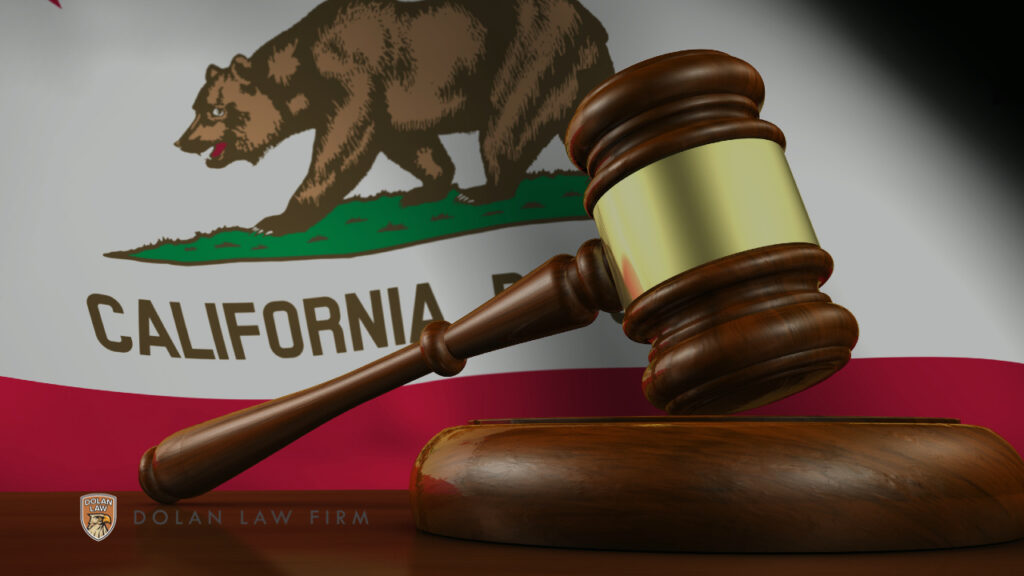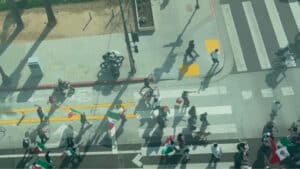Written By Chris Dolan and Matthew Gramly
This week’s question comes from Anonymous, who asks: What happened to the recent concealed carry permit legislation that was pending regarding carrying a concealed handgun?
Dear Anonymous,
Thank you for your question. As many of us know, California has some of the strictest gun control laws in the nation. That is coming to an end, given a recent U.S. Supreme Court ruling. In June of 2022 the Court issued a ruling that effectively makes California’s current law regarding who may or may not obtain a concealed weapons permit, or CCW, unconstitutional.
The Second Amendment in the Bill of Rights to the Constitution is a single sentence, reading,
“A well regulated militia, being necessary to the security of a free state, the right of the people to keep and bear arms, shall not be infringed.”
Twenty-seven words, three commas, shouldn’t be hard to understand. But the true meaning of the Amendment has been hotly debated and litigated for decades.
In 2008, in an opinion authored by Justice Antonin Scalia in the case of District of Columbia v. Heller, the Court, for the first time in over 200 years, recognized a Constitutional right of a private individual to own a firearm for traditionally lawful purposes, primarily self-defense within one’s home. Justice Scalia’s opinion was the first time the Court had ever recognized the right of an individual to own a firearm unconnected to whether or not that individual served in a militia.
This past June, a newly conservative Court issued a 6-3 opinion in the case of New York State Rifle & Pistol Association, Inc. v. Bruen wherein the Court took the Heller decision a step further, holding that private individuals have a Constitutional right to carry a handgun for self-defense outside their home.
Why does that matter to California? In the Bruen case, New York had a “may issue” handgun permit statute, as opposed to a “shall issue” statute. Essentially, the New York statutory scheme required that an individual requesting a CCW permit demonstrate some special need above and beyond garden variety self-defense, a heightened showing of “good cause,” to get approved for a concealed carry permit. The authority to grant or deny such permit requests was typically granted to the local county Sheriff, who “may” issue a permit, or not, depending on that Sheriff’s determination of whether or not you have shown enough “good cause” to qualify for one. These kinds of statutes, some have argued, leave the right to exercise one’s Constitutional rights up to your local Sheriff and what your local Sheriff thinks of you, which hardly seems fair. California has a similar “may issue” CCW statutory setup. For example, the County of San Francisco has issued less than 15 CCW permits in the last decade, while rural counties grant exponentially more CCW permits despite being more sparsely populated.
The Court found the requirement of demonstrating a particular need to be an improper barrier to exercising one’s Second Amendment Rights. It determined New York’s statute to be unconstitutional, effectively determining California’s law to be unconstitutional as well.
Almost immediately State Attorney General Rob Bonta authored a replacement bill that would meet the requirements of the Supreme Court while still aiming to protect Californians from gun violence.
The Court’s ruling in the Bruen case permitted counties and states to recognize certain sensitive gun-free zones, such as churches or schools. California’s legislators sought to exploit that loophole. They designated hospitals, schools, medical facilities of any kind, libraries, and government buildings. in creating such an expansive list of these gun free zones that effectively made it so that the only place one would be legally permitted to carry a handgun in California would be in the middle of nowhere—a thousand feet from any other person or structure. The bill failed to pass the Assembly by a single vote.
While maybe keeping with the specific language of the Bruen decision, certainly violated the spirit of the decision in such a manner that there is no possibility that it would have survived court challenges. Legislators overreached to such a degree they would have come close to effectively making the entire state a gun free zone had this bill passed. Now they must go back to the drawing board and start over, all while California’s current CCW remains unconstitutional and local authorities are unsure how to proceed.










